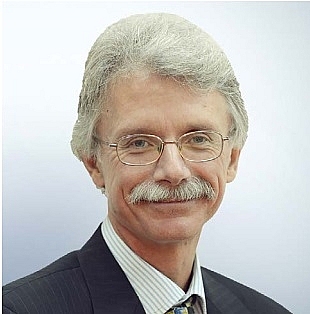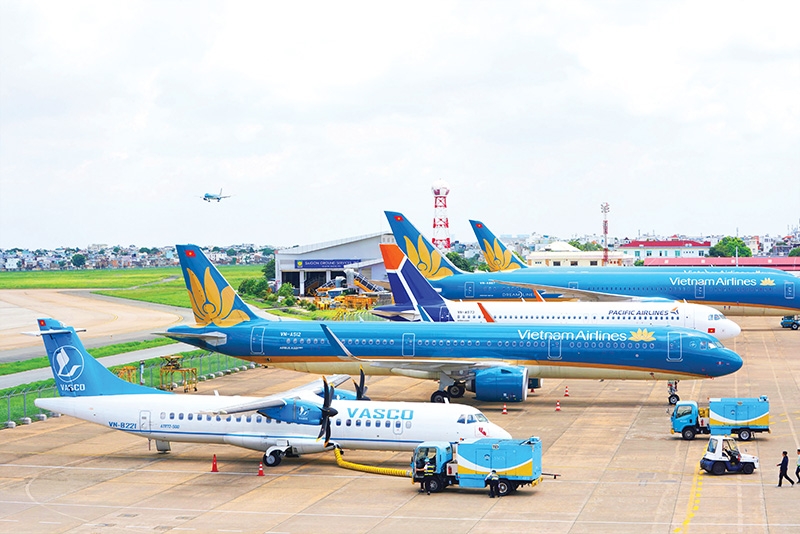Vaccine passport clarity key for aviation industry
 |
| Tony Foster, managing partner at the Vietnam office of Freshfields Bruckhaus Deringer LLP |
As in all countries, the aviation sector in Vietnam has suffered enormously from the COVID-19 pandemic. Among airlines, Vietnam Airlines operated over 96,000 flights in 2020, down about 50 per cent on-year both for passengers and cargo. The airline’s revenue in 2020 fell by 59 per cent on-year to about $1.75 billion, and it lost about $500 million in 2020.
The government is in the process of bailing out Vietnam Airlines, through a combination of the purchase of about $348 million of new equity by State Capital Investment Corporation and loan refinancings. The latter, valued at about $174 million with an interest rate of zero, was set out a few days ago in the State Bank of Vietnam’s Circular No.04/2021/TT-NHNN dated April 5 guiding refinancing by credit institutions to Vietnam Airlines.
The other airlines in Vietnam – Vietjet, Bamboo, and Vietstar, would also like to receive support from the government over and above the tax deferrals, landing fee reductions, and exemptions and other benefits that have been received to date.
However, they are among a tiny number of airlines in the world to have made a profit in 2020. Vietjet reported a net profit of $3 million. According to the airline, ancillaries accounted for nearly 50 per cent of total revenue. Bamboo Airways earned a profit of about $17.5 million.
In the airport segment, the airport businesses are also struggling in the absence of international tourists, businesspeople, and experts (other than those willing to undergo two weeks in a hotel or quarantine centre). Airports Corporation of Vietnam (ACV) recorded 65 million passengers at its 23 airports in 2020, which was down 43 per cent against 2019, with international flights declining 85 per cent on-year as a result of border restrictions. ACV’s pre-tax profit was down almost 80 per cent on-year.
Market analysts are suggesting that the aviation sector will start recovering at the end of this year. The Civil Aviation Authority of Vietnam has submitted a scheme to the Ministry of Transport – it wants a September reopening of regular international flights for those with “vaccine passports” and negative COVID-19 tests 3-5 days before coming to Vietnam. However, there are numerous obstacles.
Effect of international decisions
First off, there is no consistency among countries when it comes to vaccine passports. Travel is highly complex at the moment, with all the border restrictions and testing. A British national who travels to Vietnam to do business has various hurdles to overcome. He or she has to get permission from various Vietnamese authorities to enter; do a COVID-19 test before departure; check any regulations relating to the transit; find a flight; hope that the regulations do not change before getting on the flight; enjoy quarantine for two weeks in Vietnam; do at least two more COVID-19 tests; and potentially have to quarantine upon return. Until 2020, the only step from above was to find a flight.
When borders open, some of the above difficulties will disappear, but some new difficulties will arise. The big new issue – in Vietnam and around the world – is how vaccination will be allowed to replace quarantine.
The World Health Organization (WHO) is of the view that no country, including Vietnam, should ask for vaccine certification as a condition for travel. The UN’s health agency advises against it for now. There are ethical considerations in that plenty of people have not been able to obtain vaccinations, particularly in poorer countries. And there are practical considerations: if Vietnam requires it from other countries, those countries will require it from Vietnamese travellers. This leads to a host of issues (which will go both ways in a two-country context) around adequacy of evidence, genuineness, effectiveness, technology, and vaccine efficacy.
If countries and airlines all adopt bilateral solutions to these issues, as is currently looking likely, travel will be a minefield, particularly for tourists who are visiting more than one country. This will deter tourism and the aviation sector in Vietnam will not rebound quickly.
In another issue, it is early days in Vietnam for vaccinations. There is little guidance on its own approach to vaccination issues, much less how it will treat vaccinations by other countries. Other countries record the vaccinations administered by them differently.
By way of example, in England, people are given handwritten credit card-sized confirmation of the type of vaccine and batch number, with space for two entries. Meanwhile, Israel has a sophisticated app and barcode system, originally for use within Israel, but perhaps usable for flights in new travel corridors. If every country has a different system, which oen should Vietnam accept?
Vietnam might accept paper certificates, but would it want to check that the paperwork is genuine? Or would it accept that it is not possible, just as it cannot check whether the PCR result is real or made on a home PC.
 |
| There remains a multitude of questions over vaccine passports due to global variations and preparations. Photo: Le Toan |
Quarantine alternatives
What vaccine passports will be acceptable is another problem to be solved. Eventually, these are likely to be required to enter Vietnam, which has been at the cautious end of the spectrum in dealing with COVID-19. But which ones?
In some countries, the state might be able to provide a credible vaccine passport. In Switzerland there is a registration system that includes requirements, reminders, and validation. Similarly, in the United Kingdom there is an official NHS app linked to doctors’ records. This has an immunisations tab which details flu vaccinations and shows the dates of vaccinations. This data can feed into vaccine passports. But if the country of departure has a different system and each country of arrival wants something different, travel will be restricted.
In fact, some countries, such as the United States, are highly unlikely to have federal vaccine passports, though there might be state or private ones. If Vietnam requires a vaccine passport, it could cut off those visitors from the US who have been vaccinated but have no vaccine passport.
The WHO will probably get involved in these passports at some stage. But not now, not when so many people are unable to get their jabs.
It is now being asked if vaccines are a substitute for quarantine, but there is a more fundamental issue: will Vietnam accept vaccines as a substitute for quarantine? There are still no answers to two basic questions: How long do the various vaccines remain effective? And can vaccinated people still acquire and pass on the COVID-19 virus to others? It will take many months to get reliable information on these questions.
Vietnam is in the process of accepting various vaccines. But where is the line and how often will it change? For example, the most widely-used vaccine in the United Arab Emirates is Sinopharm, but it is not approved in the UK. So would Vietnam accept it or insist visitors from UAE are re-vaccinated with all the implications that this entails? Similarly, if a vaccine is not yet approved in Vietnam, would their use in other countries be recognised as effective in Vietnam? And how would Vietnam analyse vaccination combinations?
At some point, countries will probably all accept all serious vaccines, but it could take years to reach this stage.
If vaccination is required, when and with what alternatives? If vaccination does become a requirement for travel, it will not be implemented globally until everyone has access to one, which is likely to be well into 2022. So predictions of a big rebound in Vietnam’s aviation sector in the second half of 2021 look optimistic.
Vietnam could fill in the gap through negative tests, possibly with the option to waive if a traveller has had an internationally-recognised vaccine. This is the approach Greece is taking. But Asia generally (and Vietnam in particular) can be expected to be more cautious.
A vaccine passport will help to restart regular international travel but it will not restore the pre-pandemic glory days. This will only occur when passengers are confident that airplanes and destination countries are safe and reliable. In that, of course, Vietnam shines like a star in a largely dark sky. But it has earned its reputation through closed borders and energetic repression of any community transmissions.
If Vietnam opens and then suddenly closes because of a discovery of a new transmission, it will maintain a reputation for safety but not for predictability or reliability. Both are vital to travellers who have to spend money booking foreign travel and have to leave and return on specified dates.
Finally, the tourism industry has to be rebuilt. Large swathes of the tourism business have been devastated by COVID-19. The tourist will not find the range that used to exist. Yet that range cannot return until the tourists return in droves. It may take years for an incremental reboot of the tourism industry.
All international signals point towards a slow take-off for Vietnam’s aviation sector. It is dependent on joined-up action between nations on vaccinations and what they mean for travel. Yet joined-up action has been in painfully short supply in dealing with the pandemic to date and there is no sign that it is changing for the better.
What the stars mean:
★ Poor ★ ★ Promising ★★★ Good ★★★★ Very good ★★★★★ Exceptional
Related Contents
Latest News
More News
- VNPAY and NAPAS deepen cooperation on digital payments (February 11, 2026 | 18:21)
- Vietnam financial markets on the rise amid tailwinds (February 11, 2026 | 11:41)
- New tax incentives to benefit startups and SMEs (February 09, 2026 | 17:27)
- VIFC launches aviation finance hub to tap regional market growth (February 06, 2026 | 13:27)
- Vietnam records solid FDI performance in January (February 05, 2026 | 17:11)
- Manufacturing growth remains solid in early 2026 (February 02, 2026 | 15:28)
- EU and Vietnam elevate relations to a comprehensive strategic partnership (January 29, 2026 | 15:22)
- Vietnam to lead trade growth in ASEAN (January 29, 2026 | 15:08)
- Japanese business outlook in Vietnam turns more optimistic (January 28, 2026 | 09:54)
- Foreign leaders extend congratulations to Party General Secretary To Lam (January 25, 2026 | 10:01)

 Tag:
Tag:




















 Mobile Version
Mobile Version